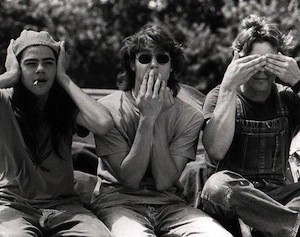What a “High School Prank” Means in 2013

In Rolling Stone this month, the story of Audrie Pott, the 15-year-old who committed suicide in September 2012, allegedly after her sexual assault ended in naked photographs passed around the halls of her Saratoga, Calif., high school. The story — and so many others like it — is dreadfully sad, and it’s also hard to understand for anyone who went to high school before the digital age. Rape stats aren’t necessarily higher, reporter Nina Burleigh explains, “but the numbers are as shocking as ever”:
Every two minutes, a sexual assault happens in the U.S., and nearly 50 percent of the victims are under the age of 18, according to Katherine Hull, a spokeswoman for the Rape, Abuse and Incest National Network: “The demographic of high school- and college-age women is at highest risk for sexual assault.” More than half of the incidents go unreported, advocates say. The ability to record and communicate gang-sex assaults has added a new enhancement to an old and ugly crime against women. From Instagram to Snapchat to texting, young people with raging hormones and low impulse control are passing around what amounts to child pornography. And the bodies most frequently watched and passed around are female.
“It’s a perfect storm of technology and hormones,” says lawyer Lori Andrews, director of the Institute for Science, Law and Technology in Chicago. “Teen sexting is all a way of magnifying girls’ fantasies of being a star of their own movies, and boys locked in a room bragging about sexual conquest.”
Pott, of course, wasn’t seeking stardom when she drank too much at a friend’s “kickback” and passed out in an upstairs bedroom, where three boys allegedly undressed her, drew on her body, assaulted her, and took pictures. “My life is over,” she wrote to a male classmate on Facebook days before she took her own life. “I ruined my life and I don’t even remember how.”
In reporting the story, Burleigh spoke to the writer Laurie Halse Anderson, author of the 1999 young adult novel Speak — certainly the first book I read that dealt with sexual assault in an intensely relatable way. “What really strikes me is that, when it comes to recording sexual assaults and wanting to show it off, the young men committing them are not seeing them as crimes, they see them as pranks,” Anderson, who frequently speaks about rape at schools around the country, says. “And there’s no point in pulling a prank unless you share it.”